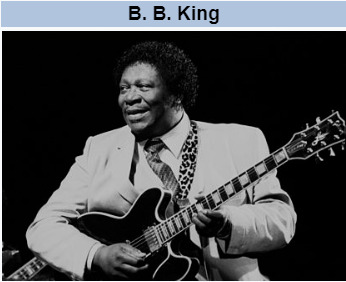You’re going to find out about a man who wasn’t just a musician; he was a towering figure in the world of blues. B.B. King, hailed as the King of the Blues, left an indelible mark on the music landscape. His life and his sounds touched the hearts of millions, not just by the tunes he played, but through the authenticity and passion with which he played them.
Have you ever wondered what made B.B. King so special? I’m going to tell you about his humble beginnings in Mississippi, how he translated the nuances of his experiences into music that spoke universally. In understanding his journey, you’ll see how King didn’t just sing the blues—he lived them, and through his life’s story, elevated the genre to new heights.
King’s influence extends far beyond individual listeners to shape entire generations of musicians. From Eric Clapton to John Mayer, the ripples of his unique style and soulfulness can be felt throughout the music industry. He wasn’t just about shaping his own sound; he was pivotal in popularizing blues across continents, making it part of the global music vocabulary.
Now, how did B.B. King achieve such a distinct sound, one that still resonates with so many? You’re about to dive into that in the next section. King’s music was not just a series of notes and chords—it was an expression of life’s complexities, and at the heart of it all was his extraordinary guitar technique.
The Signature Sound: B.B. King’s Guitar Technique
B.B. King’s six-string prowess didn’t just influence the blues genre; it revolutionized the entire landscape of modern music. His approach to playing the guitar was as distinct as his voice, marked by a simplicity that echoed with raw emotion and storytelling power. I’m going to dissect the core elements that made his style legendary.
There’s a story in every note that came from B.B. King’s guitar, and it was no ordinary guitar. He famously named each of his guitars “Lucille” as a reminder of a near-death experience during a fire, which was started over a scuffle about a woman named Lucille. This marked the beginning of a larger-than-life relationship between the man and his instrument, symbiotic in creating soul-stirring blues.
I’m here to help you understand what set King’s technique apart. His standout vibrato, slow and wide, became his sonic signature. You’re going to find out about how, rather than relying on complex chords, King masterfully shaped single notes, giving each one space to breathe and resonate. The controlled bending of strings in his leads wrung out every ounce of feeling, bringing his audience members to the very crossroads of human emotion.
And it wasn’t just about his handwork; B.B. King’s stage presence was a force in itself. While some guitarists stay rooted to the spot, King made his performances an interactive experience. His improvisational skills were top-notch; he could spin a new tale with his guitar every night, all the while maintaining a conversation with the audience through Lucille’s strings.
Choose something that resonates with you when you think of B.B. King’s performances. Whether it’s his soulful bends, his shimmering vibrato, or his charismatic stage banter, his style was all about creating a connection – with the music, the guitar, and the crowd. This connection paved the way for numerous memorable partnerships, which is where we’re going to venture next.
King of Collaborations: B.B. King’s Noteworthy Partnerships
Now, when we talk about B.B. King, we can’t just mention his solo career without diving into the wealth of collaborations that enriched his legacy. King was a master collaborator who worked alongside a diverse array of artists, spanning genres and generations.
His partnerships read like a who’s who of the music world. From sharing the stage with fellow blues legends like Howlin’ Wolf and Muddy Waters to stepping into the realms of jazz, rock, and even country with the likes of U2, Eric Clapton, and Johnny Cash. These collaborations didn’t just amplify his tunes; they bridged musical worlds, bringing the soul of the blues to new audiences.
It wasn’t just about lending his voice and guitar to other artists’ tracks. King brought his signature sound to collaborative live performances, televised appearances, and even in the recording studio. His album ‘Riding with the King’ with Eric Clapton won a Grammy and stands as a testament to his generosity in sharing the spotlight.
By mentoring young talent and eagerly joining forces with other musicians, B.B. King demonstrated a commendable openness and humility. This attitude gave rise to opportunities for mentorship, deeply affecting the careers of artists like Bonnie Raitt and John Mayer, both of whom have expressed their gratitude for King’s influence on their music and lives.
King’s collaborative spirit offers more than just a lesson in music history. It’s a model for professional generosity and creative exchange, transcending competition in favor of collective growth and innovation within the arts.
Preserving the Legacy: B.B. King’s Cultural and Educational Influence
So, you’re fascinated by how legends leave footprints that last far beyond their time. I get it. B.B. King did more than just play the blues; he lived them and passed them on. The B.B. King Museum and Delta Interpretive Center stands as a testament to this. Nestled in his hometown of Indianola, Mississippi, it’s a hub for music lovers to immerse themselves in the world King dominated with his guitar, Lucille.
But it isn’t just about a museum. King’s influence echoes in classrooms too. Through music and history programs inspired by his life, kids are getting lessons on resilience, creativity, and the power of storytelling through music. It’s about keeping those rich blues alive, teaching the next generation about its soul-stirring depth.
I’m here to tell you that King wasn’t just about the notes he played; he was a voice during the civil rights era, using his music as a bridge between divided communities. His songs spoke truths that many were afraid to say out loud. Simply put, B.B. King was a cultural powerhouse.
Even though the King of Blues is no longer with us, his legacy thrives. Musicians across genres still study his records, picking up not just his licks, but his spirit. And honestly, with every string they bend, King’s influence strums on. Whether in the museum, the classroom, or the hearts of blues enthusiasts, B.B. King’s legacy is as enduring as the music he gave the world. This is the kind of legacy that doesn’t fade with time; it only gets stronger, reminding us of the power of perseverance, expression, and unapologetic originality.






